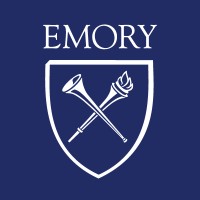预约演示
更新于:2025-09-20
DQP-1105
更新于:2025-09-20
概要
基本信息
药物类型 小分子化药 |
别名 DQP-1105 |
作用方式 抑制剂 |
作用机制 GRIN2C 抑制剂(glutamate ionotropic receptor NMDA type subunit 2C inhibitors)、GRIN2D 抑制剂(glutamate ionotropic receptor NMDA type subunit 2D inhibitors) |
治疗领域- |
在研适应症- |
非在研适应症- |
原研机构 |
在研机构 |
非在研机构- |
权益机构- |
最高研发阶段临床前 |
首次获批日期- |
最高研发阶段(中国)- |
特殊审评- |
结构/序列
分子式C29H24BrN3O4 |
InChIKeyMVYNQMRZRULRIE-UHFFFAOYSA-N |
CAS号380560-89-4 |
关联
100 项与 DQP-1105 相关的临床结果
登录后查看更多信息
100 项与 DQP-1105 相关的转化医学
登录后查看更多信息
100 项与 DQP-1105 相关的专利(医药)
登录后查看更多信息
11
项与 DQP-1105 相关的文献(医药)2025-06-04·CEREBRAL CORTEX
Activation of GluN2D-containing NMDA receptors promotes development of axons and axon-carrying dendrites of cortical interneurons
Article
作者: Demianchuk, Ekaterina ; Sobierajski, Eric ; Riedel, Christian ; Hoffmann, Leon ; Köhler, Ina ; Wahle, Petra ; Rennau, Lisa-Marie ; Kaczmarski, Michelle
Abstract:
GluN2D-containing NMDA receptors are expressed in early postnatal interneurons, but their role is enigmatic. We tested whether treatment with the GluN2C/D positive allosteric modulator CIQ and non-competitive antagonist DQP-1105 from days in vitro (DIV) 5–10 and DIV 15–20 modulates neurite growth in organotypic cultures. Calcium imaging confirmed a functional expression of GluN2D in nonpyramidal neurons. DQP treatment enhanced apical dendritic branching and increased ERK1/2 phosphorylation and spine density, suggesting a disinhibitory effect mirrored by a reduced expression of GAD-65, VGAT, and Syt-2. Control basket cells had larger axon-carrying dendrites (AcDs), and under CIQ, the AcDs grew even larger. The axons of CIQ-treated basket cells formed more branches within the dendritic field, and the effect was strongest for axons emerging from AcDs. DQP-treated basket cells also displayed more complex AcDs, presumably driven by enhanced network activity. However, local branching of basket cell axons was reduced under DQP in somatic axon cells but at control level in AcD cells. This suggested a growth-promoting effect of the enhanced network activity and that the AcD configuration neutralized the inhibitory action of DQP on basket cell axons. The results suggest a specific role of GluN2D signaling for development and remodeling of interneuronal axons.
2024-07-01·EPILEPSIA
Pathogenic MTOR somatic variant causing focal cortical dysplasia drives hyperexcitability via overactivation of neuronal GluN2C N‐methyl‐D‐aspartate receptors
Article
作者: Watrin, Françoise ; Szepetowski, Pierre ; Represa, Alfonso ; Bauer, Sylvian ; Burnashev, Nail ; Pineau, Louison ; Cardoso, Carlos ; Tarhini, Sarah ; Crepel, Valérie ; Buhler, Emmanuelle
Abstract:
Objective:
Genetic variations in proteins of the mechanistic target of rapamycin (mTOR) pathway cause a spectrum of neurodevelopmental disorders often associated with brain malformations and with intractable epilepsy. The mTORopathies are characterized by hyperactive mTOR pathway and comprise tuberous sclerosis complex (TSC) and focal cortical dysplasia (FCD) type II. How hyperactive mTOR translates into abnormal neuronal activity and hypersynchronous network remains to be better understood. Previously, the role of upregulated GluN2C‐containing glutamate‐gated N‐methyl‐D‐aspartate receptors (NMDARs) has been demonstrated for germline defects in the TSC genes. Here, we questioned whether this mechanism would expand to other mTORopathies in the different context of a somatic genetic variation of the MTOR protein recurrently found in FCD type II.
Methods:
We used a rat model of FCD created by in utero electroporation of neural progenitors of dorsal telencephalon with expression vectors encoding either the wild‐type or the pathogenic MTOR variant (p.S2215F). In this mosaic configuration, patch‐clamp whole‐cell recordings of the electroporated, spiny stellate neurons and extracellular recordings of the electroporated areas were performed in neocortical slices. Selective inhibitors were used to target mTOR activity and GluN2C‐mediated currents.
Results:
Neurons expressing the mutant protein displayed an excessive activation of GluN2C NMDAR‐mediated spontaneous excitatory postsynaptic currents. GluN2C‐dependent increase in spontaneous spiking activity was detected in the area of electroporated neurons in the mutant condition and was restricted to a critical time window between postnatal days P9 and P20.
Significance:
Somatic MTOR pathogenic variant recurrently found in FCD type II resulted in overactivation of GluN2C‐mediated neuronal NMDARs in neocortices of rat pups. The related and time‐restricted local hyperexcitability was sensitive to subunit GluN2C‐specific blockade. Our study suggests that GluN2C‐related pathomechanisms might be shared in common by mTOR‐related brain disorders.
2024-05-01·International immunopharmacology
NMDAR (2C) deletion in astrocytes relieved LPS-induced neuroinflammation and depression
Article
作者: He, Kaiwu ; Yang, Canyu ; Li, Axiang ; Liu, Zizhen ; Gao, Ruyan ; Ali, Tahir ; Li, Shupeng ; Feng, Jinxing
The link between neuroinflammation and depression is a subject of growing interest in neuroscience and psychiatry; meanwhile, the precise mechanisms are still being unrevealed. However, glial cell activation, together with cytokine level elevation, suggests a connection between neuroinflammation and the development or exacerbation of depression. Glial cells (astrocytes) communicate with neurons via their extracellular neurotransmitter receptors, including glutamate receptors NMDARs. However, these receptor roles are controversial and enigmatic in neurological disorders, including depression. Therefore, we hypothesized whether NMDAR subnit NR2C deletion in the astrocytes exhibited anti-depressive effects concurrent with neuroinflammation prevention. To assess, we prepared astrocytic-NR2C knockout mice (G-2C: GFAPCre+Grin2Cflox/flox), followed by LPS administration, behavior tests, and biochemical analysis. Stimulatingly, astrocytic-NR2C knockout mice (G-2C) did not display depressive-like behaviors, neuroinflammation, and synaptic deficits upon LPS treatment. PI3K was impaired upon LPS administration in control mice (Grin2Cflox/flox); however, they were intact in the hippocampus of LPS-treated G-2C mice. Further, PI3K activation (via PTEN inhibition by BPV) restored neuroinflammation and depressive-like behavior, accompanied by altered synaptic protein and spine numbers in G-2C mice in the presence of LPS. In addition, NF-κB and JNK inhibitor (BAY, SP600125) treatments reversed the effects of BPV. Moreover, these results were further validated with an NR2C antagonist DQP-1105. Collectively, these observations support the astrocytic-NR2C contribution to LPS-induced neuroinflammation, depression, and synaptic deficits.
100 项与 DQP-1105 相关的药物交易
登录后查看更多信息
研发状态
登录后查看更多信息
临床结果
临床结果
适应症
分期
评价
查看全部结果
| 研究 | 分期 | 人群特征 | 评价人数 | 分组 | 结果 | 评价 | 发布日期 |
|---|
No Data | |||||||
登录后查看更多信息
转化医学
使用我们的转化医学数据加速您的研究。
登录
或

药物交易
使用我们的药物交易数据加速您的研究。
登录
或

核心专利
使用我们的核心专利数据促进您的研究。
登录
或

临床分析
紧跟全球注册中心的最新临床试验。
登录
或

批准
利用最新的监管批准信息加速您的研究。
登录
或

特殊审评
只需点击几下即可了解关键药物信息。
登录
或

生物医药百科问答
全新生物医药AI Agent 覆盖科研全链路,让突破性发现快人一步
立即开始免费试用!
智慧芽新药情报库是智慧芽专为生命科学人士构建的基于AI的创新药情报平台,助您全方位提升您的研发与决策效率。
立即开始数据试用!
智慧芽新药库数据也通过智慧芽数据服务平台,以API或者数据包形式对外开放,助您更加充分利用智慧芽新药情报信息。
生物序列数据库
生物药研发创新
免费使用
化学结构数据库
小分子化药研发创新
免费使用
